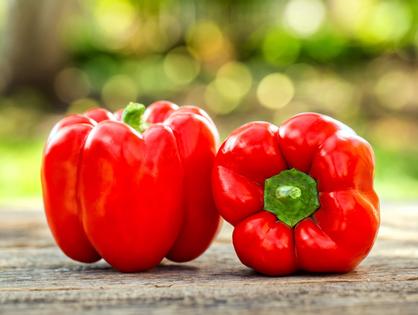Environmental Nutrition: Vitamin C health update
When you hear "vitamin C," do you think about oranges and fending off colds? Think again! Many people are surprised to learn that a half cup of red peppers has twice as much vitamin C as an orange, and this versatile vitamin may be better at fighting cancer and cardiovascular disease than colds!
Now you "C" it! Humans can't make vitamin C, so we need to get it from food. We also can't store it, so we have to be sure to get a continuous supply. Luckily, at least a little vitamin C can be found in all fruits and vegetables. Foods can lose vitamin C when they're cooked or stored for long periods of time, however, so those cooked mixed vegetables or that old bottle of orange juice may have less C than raw veggies or fresh OJ. Since Vitamin C dissolves in water, cooking methods that use little or no water (microwaving or light steaming) or dishes in which you consume the cooking liquid (soups and stews) will get you the most vitamin C for your buck. Or, you can simply enjoy C-rich foods like broccoli and peppers au natural.
Vitamin C science: This important vitamin has lots of uses in our bodies. It's necessary for growth and repair of tissues, from healing wounds to maintaining cartilage, bones and teeth. Vitamin C also is a powerful antioxidant, fighting the free radicals that promote diseases, such as cancer, heart disease and arthritis. While it has a role to play in the body's immune system, research doesn't support the idea that vitamin C can prevent colds, although it might help you get better, faster.
Fortunately, there are lots of other science-based benefits from getting/having this important vitamin into/in your diet. Studies show that people who get more vitamin C from foods or supplements have a lower risk of cardiovascular diseases, including coronary heart disease and stroke. While vitamin C doesn't prevent cancer, it might help with treatment. Additionally, people with higher blood levels of the vitamin have lower risk of death from all causes, including cancer and heart disease.
(Environmental Nutrition is the award-winning independent newsletter written by nutrition experts dedicated to providing readers up-to-date, accurate information about health and nutrition in clear, concise English. For more information, visit www.environmentalnutrition.com.)







